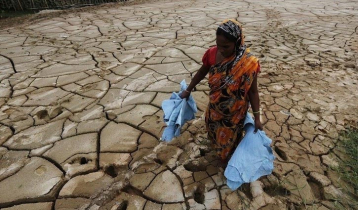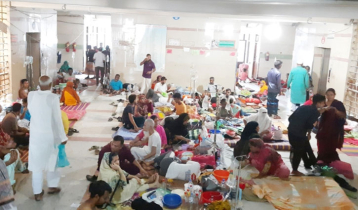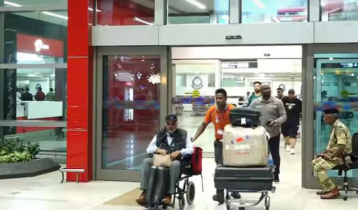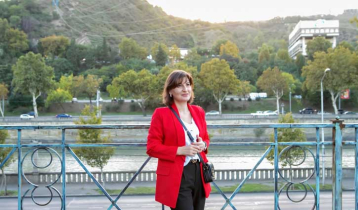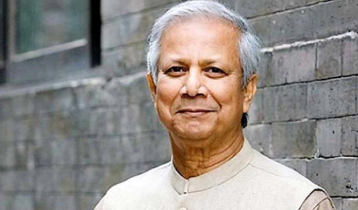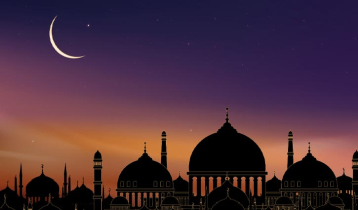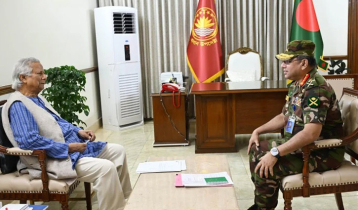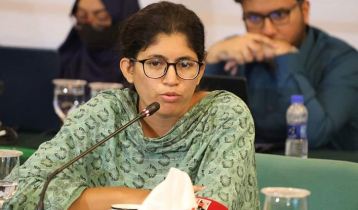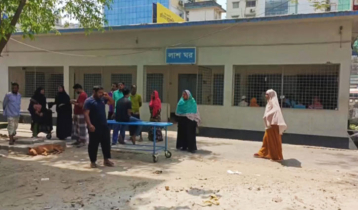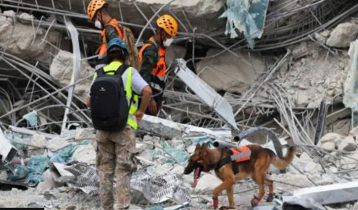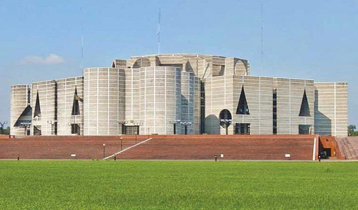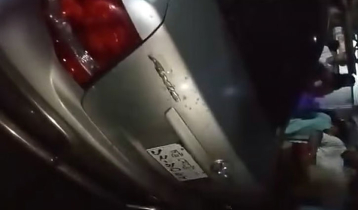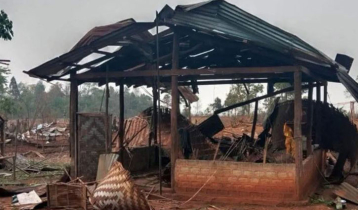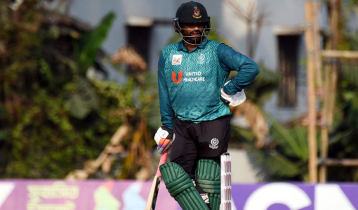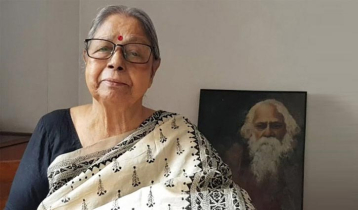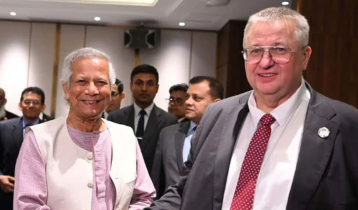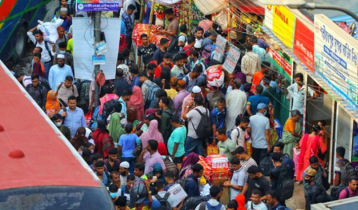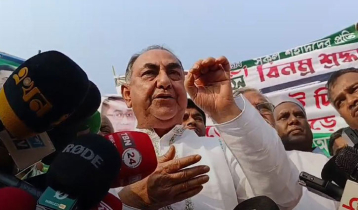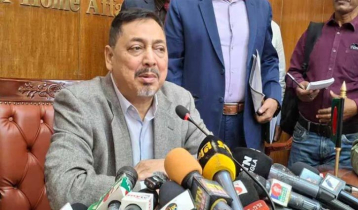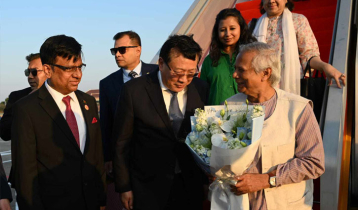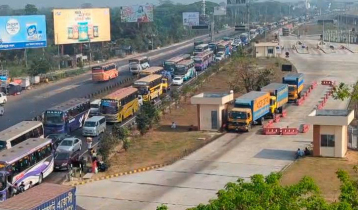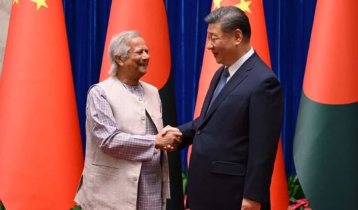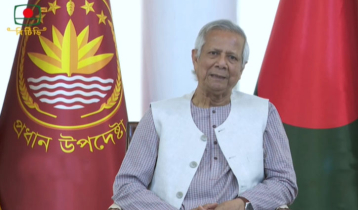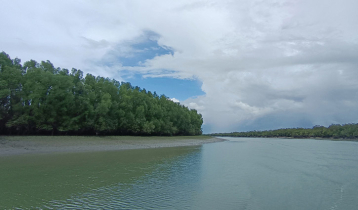How Rohingya women have been targeted for sex slavery
Pinky Akter || risingbd.com
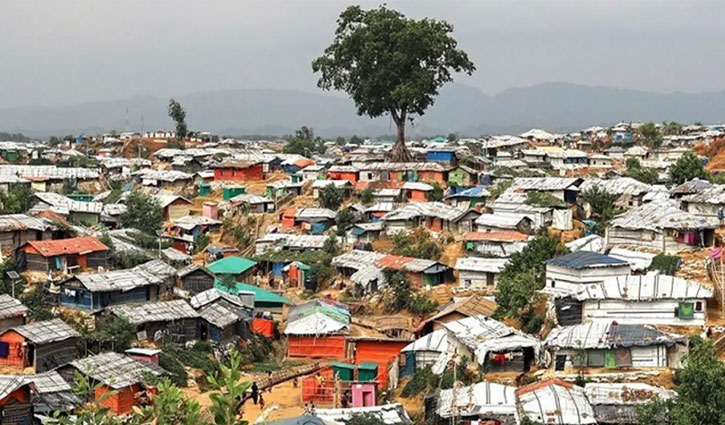
Asia (pseudonym), 16 and her eight family members moved to Bangladesh in 2017 following persecution by the Myanmar military in Rakhine state. She moved into Muchuni Camp in Cox’s Bazar with her grandparents and siblings after losing her parents.
After five years, Sanjida (45), a Rohingya refugee who lives in Camp-4 Kutupalong, assured her that she would be given a work as a cleaner at a hotel. But in the end, she was compelled to work as a sex slave.
"Sonchida sold me here for forty thousand taka. I couldn’t do anything when I came to know that later,", She couldn't leave this work later because of she get life threat from sex trade owner. Asia is now sixteen years old, yet she appears like an adult. Asia claims that this is because of Oradexon, a steroid drug, known as red pill among the locals.
Like Asia, many other Rohingya refugee women find themselves at different cottages at Kolatoli in Cox’s Bazar, Bangladesh’s southern district that gave refuge to more than one million Rohingya refugees since the violent crackdown on the Muslim ethnic groups in Rakhine state, Myanmar in 2017.
Rohingya women residing in the camps in Cox’s Bazar end up in the hands of cottage owners who runs the illegal sex trade after they are offered jobs there.
In a 2017 BBC article, it was revealed that Rohingya women are being forced into prostitution by people who take advantage of their vulnerability. Other International media also show this scenario. ( Link Will be attached here) https://www.bbc.com/news/world-asia-41928555
https://www.aljazeera.com/news/2017/12/3/rohingya-women-sold-as-sex-slaves-in-bangladesh
https://news.sky.com/story/pimp-says-rohingya-plight-good-for-business-11124977
There have been numerous rescue operations in recent years. During an operation in Khilgaon, Dhaka on March 26, 2019, Rab-3 rescued four Rohingya women who had been trafficked here for human trafficking.
On March 1 this year, Cox’s Bazar tourist police conducted an operation at the cottage zone where ten Rohingya young women were rescued from the underground of three anonymous hotels. DIG Apel Mahmud of tourist police said, “These girls are brought here from numerous camps with the use of deception.”
However, the Cox’s Bazar District Police, when asked, said they were unaware of any such operation.
The police super Md Mahfuzul Islam said, "No such work is going on here, we are not aware of this operation. He will speak with the tourist police about this matter.”
Hotel owners accused the police administration of having some indirect involvement in this matter. ‘Local police know about our business because Monthly we give a fix money (bribe) to some local police officers (he didn't mention a exact name) said Lokman’, who has hotel in Cox's-bazar cottage area where many young Rohingya Girl involved now this illegal work.
While the Rohingya population has arrived in Bangladesh at various occasions over the years, the majority arrived in 2017 as a result of persecution by the military in their own country. According to the United Nations, the total Rohingya refugee population in Bangladesh is more than 960,000 now, with 75% of them being women and children (Link will be attached here https://www.unrefugees.org/emergencies/rohingya-refugee-crisis/#Rohingya). They were accommodated at Cox’s Bazar, with little chances of returning to their homes.
Rohingya camps in Cox’s Bazar are surrounded by barbed wire fences to obstruct them from mixing with Bangladeshi nationals. This reporter found that these barricades were cut in several places in the camps in Kutupalong and Balukhali . Several rival insurgent groups like Arakan Rohingya Salvation Army (ARSA), Rohingya Solidarity Organization (RSO), and Islamic Mahaz, are active inside the camps and they are involved with kidnapping, drug-peddling and power-rift.
Mohammad Amir Zafar, commander of Armed Police Battalion – a specialized unit of Bangladesh Police responsible for security inside the camps, said, “There are various criminal gangs in the camp. We are constantly trying to prevent human trafficking in the camp."
As the security in the camps is getting weakened day by days, women, just like the men, are left with no work opportunities, and they have become one of the most vulnerable groups among the refugees. Their vulnerabilities are making them the victims of different crimes, including traffickinhg, sex services, and kidnapping (Link will be attached here https://news.un.org/en/story/2018/10/1023282).
.
How the whole network works
There are about 15 to 20 cottages in the Cox Bazar Kolatoli area, of which 8 to 9 have no signboard. Md Lokman, Md Asif, Md Siraj, Md Shahin (also known as Pan Shahin), and Md Rahim are the owners of these unnamed cottages. There are 50 to 100 girls - aged from 12 to 25 years - who serve in each cottage.
Some of those who work with the traffickers are Rohingya women themselves.
The head Majhi of camp 11, Billal Sheikh, informed that the groups of Rohingya women gangs in the camp target helpless families, especially widows and girls from families who had lost their husbands and fathers, and forced them out of the camp using various deceits.
“Everyone here is Muslim so we deem this profession as [a] grave sin. And the religious organisations inside the Rohingya camps act harsh when it comes to anything about women. Even if such a thing [about] a girl got out in public, her family is subjected to violence,” Billal said.
Sonchida Begum arrived in Bangladesh from Myanmar in 1989 and settled at Camp-4 in Kutupalong. As part of the trafficking ring, she targets Rohingya women who arrived during the 2017 Rohingya refugee crisis, and are mostly without their parents, husband or brother. She promises the refugee women of jobs to entice them to engage in sex services. Shanina Akter, a 40-year-old Rohingya woman, is also doing this with her. Sanjida was found guilty of human trafficking and sentenced to five years in jail. She was released in 2020, and she is again back to this business.
Asiya, one of the victims, revealed that Sanjida tricked numerous other girls into selling them to the cottage owners by offering them lucrative jobs and she receives between twenty and forty thousand takas for each sale.
The Officer in Charge of the Cox’s Bazar police station, Rakibuzzaman, blamed the gaps in the criminal justice system for this.
“Even if these criminals were brought under the law, they come out after a few days because of the law's loopholes," Rakibuzzaman added.
The US State Department's annual report on human trafficking, ( link will be attached herehttps://www.state.gov/reports/2024-trafficking-in-persons-report/bangladesh/#:~:text=The%20government%20identified%201%2C210%20trafficking,included%20victims%20of%20other%20crimes).
'Trafficking in Persons (TIP) Report 2024', states that the Bangladesh government has not adequately investigated and prosecuted trafficking cases related to the exploitation of Rohingya refugees. The report also stated that the government has not established any new anti-trafficking tribunal. Victim protection efforts remain inadequate, says U.S. Human Trafficking Report. Officials often lack a victim-centered approach when communicating with or talking to survivors of trafficking.
When asked, Md Lokman, the owner of the cottage eventually admitted that he is involved with the sex trade too before this business he was a hotel boy. He was questioned about how he managed to maintain his business operations despite being often jailed. In response, he said, "I have been paying the police their dues every month since the beginning of this business."
However, there was no way to verify this claim further.
There are agents that bring in clients for these cottages. Additionally, in response to client requests, they also send these Rohingya girls to several additional hotels at Coxs Bazer. Depending on the woman offered, clients pay up to 1000–5000 tk per hour for this service. To maintain track of the number of customers, girls are handed a blue token for each client. These hotels bring in five to six million taka a month, yet the women who are forced to work as sex workers here get pitiful wages.
Ruhina, a 17-year-old sex worker of Asif's hotel, stated, "I am given only 4,000 taka monthly here and for this I must go to 4 to 5 customers daily."
"We are not allowed to keep any money from clients, not even tips that they may leave us after using my services. Here, we are unable to take any action without the approval of the owner. We get beaten if we don’t listen to them,", Ruhina continued. "And they threaten to kill me if I want to leave this work."
Women are subjected to various forms of violence inside refugee camps:
Although they sought refuge in Bangladesh in order to flee the torture, Rohingya women continue to be subjected to various forms of assault inside the camps. Besides sex trafficking, these harmful acts are committed not only by family members, but also members of the authorities.
According to a report by the Ontario International Development Agency (OIDA), the Myanmar military and police force raped almost 18,000 Rohingya women of various ages. (Link will bw attached herehttps://www.rescue.org/uk/report/shadow-pandemic-gender-based-violence-among-rohingya-refugees-coxs-bazar) 81% of gender-based violence (GBV) occurs between close relatives in the 19 refugee camps in Cox’s Bazar, according to the International Rescue Committee. In 56% of such instances, they are the targets of physical abuse. The majority of Rohingya women have experienced sexual abuse and gender-based violence at the hands of their spouses, relatives, and members of criminal groups. Rape, forced marriage, emotional and physical abuse, and threats are instances of this violence.
“Here, precariousness and insecurity are a part of everyday existence. Miscreants persistently harass our girls and peeps inside our house”. Helplessly, Kulsum, a mother of four daughters, helplessly states.
However, the majority of Rohingya refugees—especially the women—are not allowed to work outside of the camp.
Additionally, our family endures pressure from different religious groups within the camp,” said Saleya, a fellow Rohingya resident of Kutupalong refugee camp.
Religious leaders frequently spearhead campaigns encouraging women to abstain from outdoor labor. Even when the ladies go out in public, they are asked to wear burkhas.
What are the women victimised saying?
In the report, ten women who were duped into the sex trade were interviewed.
"I want to live a normal life like every other woman," Moni, one of the victims, sobbed as she spoke to the reporter.
"This is a physically exhausting line of work for me. I wish to live a tranquil life and get rid of this work,”, she added.
It was Moni’s own sister-in-law who introduced her to this work. Because of poverty, she turned to this profession for a living. She resides in the camp with her two children, but nobody in the camp is aware of her professional life. If her community found out, she would be shunned. She is still determined to escape this prostitute life.
"Here we are, living in confinement, having been denied residence in our own country. Nobody is giving us a job. How are we going to continue? What kind of life will we lead? What would my children's future hold? Where are we going to go?" Frustrated, Asiya, another sex worker, was asked again and again.
"We did not choose to enter this line of work. After being persecuted by our own nation, we have sought refuge here. We now have to perform this type of work. We endured numerous forms of torture and kidnapping even within the camp. We endure great suffering in this profession. Customers occasionally force us, beat us, and mistreat us,” said, Rita (pseudonym), a night shift employee at an unnamed hotel in the cottage zone.
What are the opinions of those involved?
A local organisation named ‘Nongor’ works with sex workers in Cox’s Bazar. While they focus on HIV related case, they are concerned about the involvement of Rohingya women in the sex trade.
Didarul Rashid, deputy director of this organisation said, “Apart from the local brokers, many of the Rohingya refugees who came to Bangladesh long ago, are forcing the Rohingya women into sex trade in various ways. They are doing this by taking advantage of the destitution.”
He added, “Those who are trafficked abroad in the name of employment are actually engaged in sex work. Many Rohingya women are rescued while being trafficked overseas. Many Rohingya women are forced into sex trade from outside the camps after arriving here. Not only here, they are being forced to work in sex trade in other parts of the country too.”
It is not known how many Rohingya women have been targeted in the sex trade but it is safe to say that these numbers are rising alarmingly. The reason behind that is the Rohingya camps are not secured. And the network of the agents involved in sex trade is also inside the camps.
Regarding Rohingya women engaged in the sex trade, the local administration does not possess any information. No survey has been conducted on this population by the United Nations as of yet. However, a 2017 Reuters article claims that around 500 women and girls from these camps are forced into the sex trade. The majority of the Rohingya refugees who arrived in 2017 were females. And right now, the majority of these 6 lakh new refugees are women and girls. Moreover, 10,000 more women and girls are at risk of becoming prostitutes as we speak. That being said, it is obvious that the number is higher and growing every day.
Additional Police Super, Md Mahfuzul Islam, of Cox’s Bazar district police, said, "We received no reports of Rohingya women engaging in the sex trade. But there are claims that they experience sexual harassment while living in the camps."
He added that this sex trade is being closely monitored by the police.
Asif Munir, a refugee expert in Bangladesh, believes that women are adopting this career to escape the plight of the Rohingya crisis. However, the weakness of the law is being blamed for such actions taking place right beneath the administration's nose. If the law is not enforced, it will only remain in the external sense, so strict law enforcement as well as administrative supervision is necessary to suppress- rein in the crime, said Asif Munir. As he does not see a prospect for Rohingya refugees to return to their home country in the near future, he has asked that Bangladesh's law and order treat Rohingya refugees equally.
This story was produced as a part of Asia Pacific Forum on Women, Law and Development’s Media and Visual Fellowship on Militarism, Peace and Women’s Human Rights.
Hasan/Mukul


